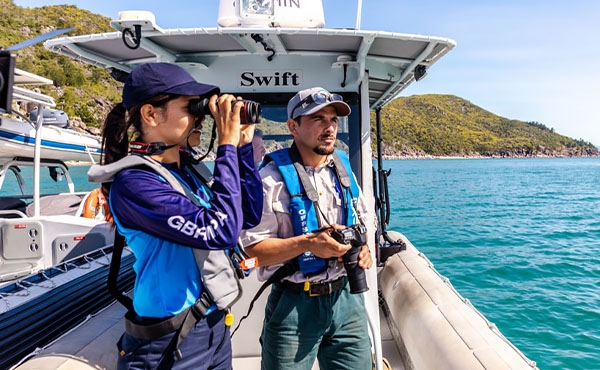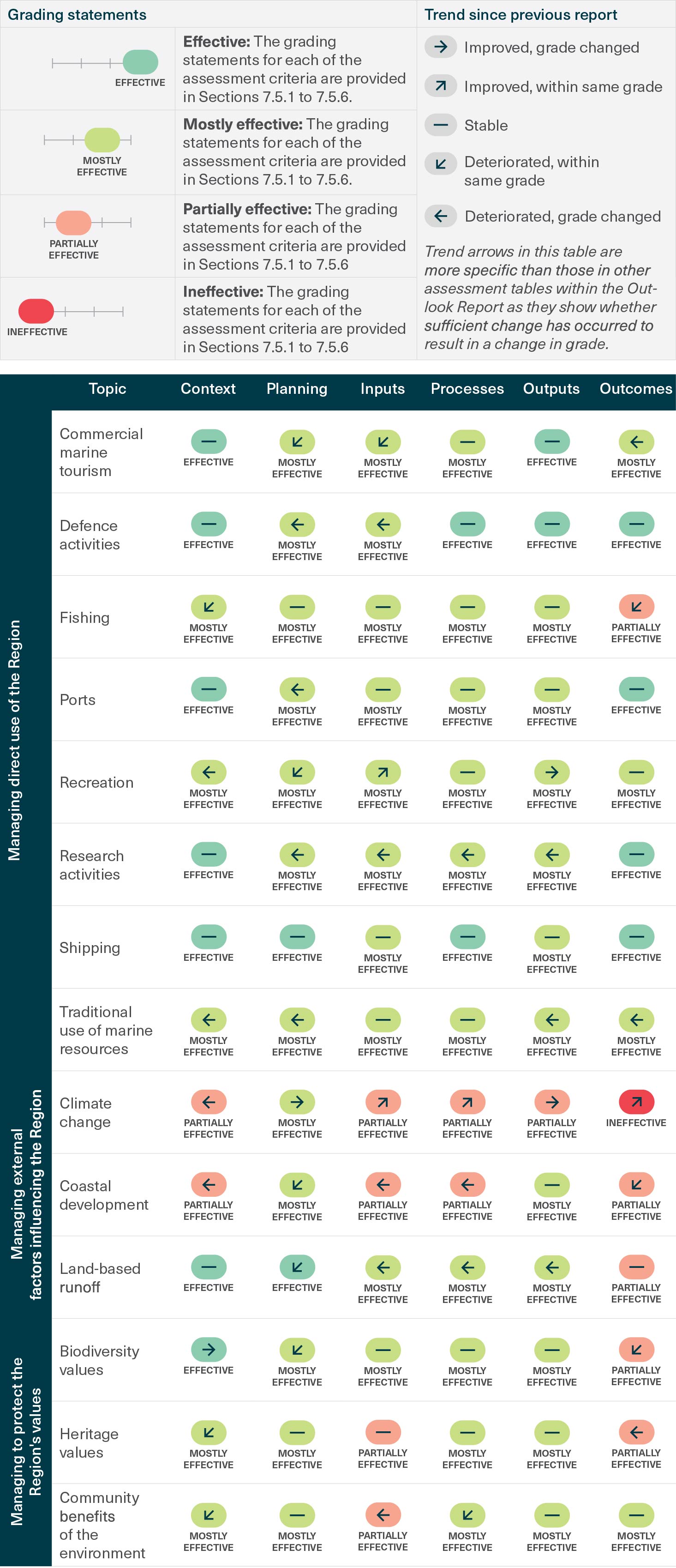Effective management of the Region is a complex task, given the range of threats and their variation across space and time. The management effectiveness assessment11 focused on the six elements of the management framework: context, planning, inputs, processes, outputs and outcomes. It addressed 14 broad management topics and considered the activities of relevant Australian and Queensland government agencies and other contributing partners.
The assessment found the Region continues to be well managed, with more than 80 per cent of elements across the management topics considered effective or mostly effective (Table 7.4). Context was the strongest element, reflecting managers’ knowledge and understanding of Reef values, national and international influences, and relevant government and non-government actors across the overall system. Overall, the weakest elements were processes and outcomes. Notable management improvements since 2019 include the enhanced funding and planning initiatives through the Reef 2050 Plan 2 and Queensland Sustainable Fisheries Strategy 2017–2027.1251



